Daily Dose of Sunshine (정신병동에도 아침이 와요) is a South Korean drama series which is based on the popular webtoon by former nurse Lee Ra-ha. It is directed by Lee J.Q. (All of Us Are Dead) and written by Lee Nam-kyu. There are 12 episodes in the series with a runtime of about 60-70 minutes.
The ensemble cast of the series includes Park Bo-young as Jung Da-eun, Yeon Woo-jin as Dong Go-yun, Jang Dong-yoon as Song Yu-chan, Lee Jung-eun as Song Hyo-shin, Park Ji-yeon as Hong Jeong-ran, Jeon Bae-soo as Yoon Man-cheon, Lee Yi-dam as Min Deul-re, Lee Sang-hee as Park Soo-yeon, Yoo In-soo as Ji Seung-jae, Jang Ryul as Hwang Yeo-hwan and others.
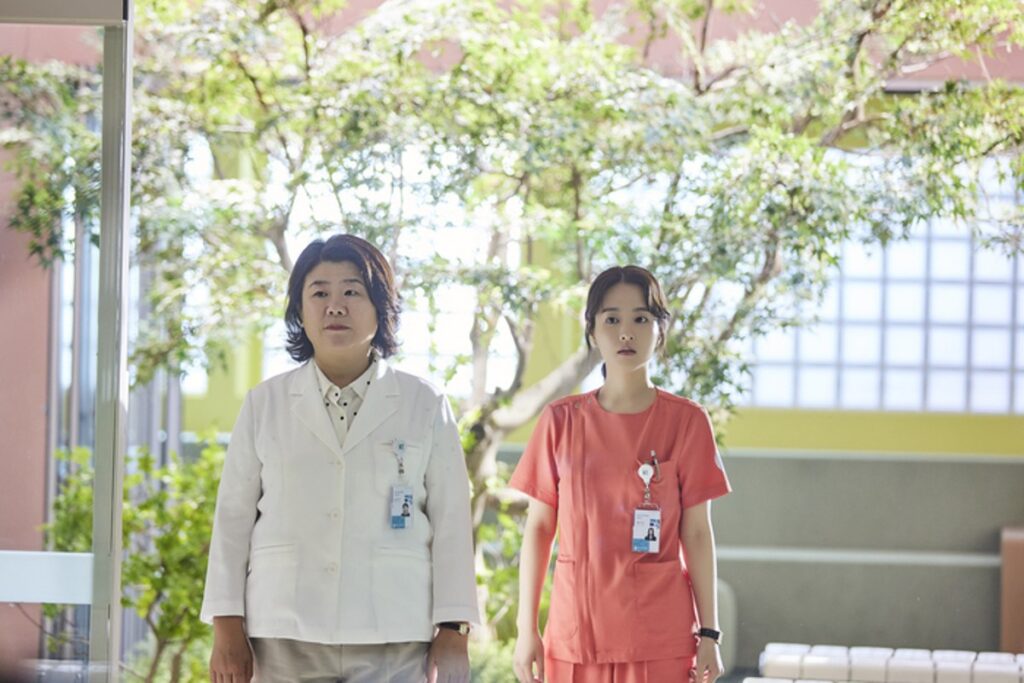
Daily Dose of Sunshine Review
The show starts with Nurse Jung Da-eun’s first day in the psychiatric department. However, nobody knows why she has been transferred from internal medicine in her 3rd year. Her colleagues speculate that she might have caused some trouble there, while she believes that the head nurse deemed her skills perfect for the psychiatric ward. In reality, she had been transferred because her ‘too kind’ and nice personality slowed the work progress and caused issues with her colleagues. While these qualities make one likeable to the majority, in her line of work, it makes everything more complicated. Not ‘cut out to be a nurse’ as her previous Head nurse describes her.
Da-eun also realises that when on her first day, her seemingly careful and considerate words get her physically struck by a patient who’s having a manic episode, slips on the floor and gets her scrubs completely soiled in piss. Contrary to her last department, her colleagues are more understanding and support her in hard times. Like Dr Hwang Yeo-hwan, who tutored her when she was in high school, tries to comfort her in difficult situations. Add her childhood best friend Song Yu-chan always comes through to pick her up, while hiding a secret of his own.
Amidst the story of how Da-eun adjusts herself and learns the ways of the psychiatric department, romance also comes her way, in the form of an obsessive proctology doctor – Dong Go-yun. Suffering from the erratic habit of popping his finger joints, he finds his urges disappear in the presence of Da-eun. Known for his tenacity to achieve whatever he sets his mind to, he approaches Da-eun slowly to win her heart and lend her a shoulder in her darkest times. Following Da-eun and the people around her, we get to see different facets of mental issues, what causes them and how she learns along with her ward patients.
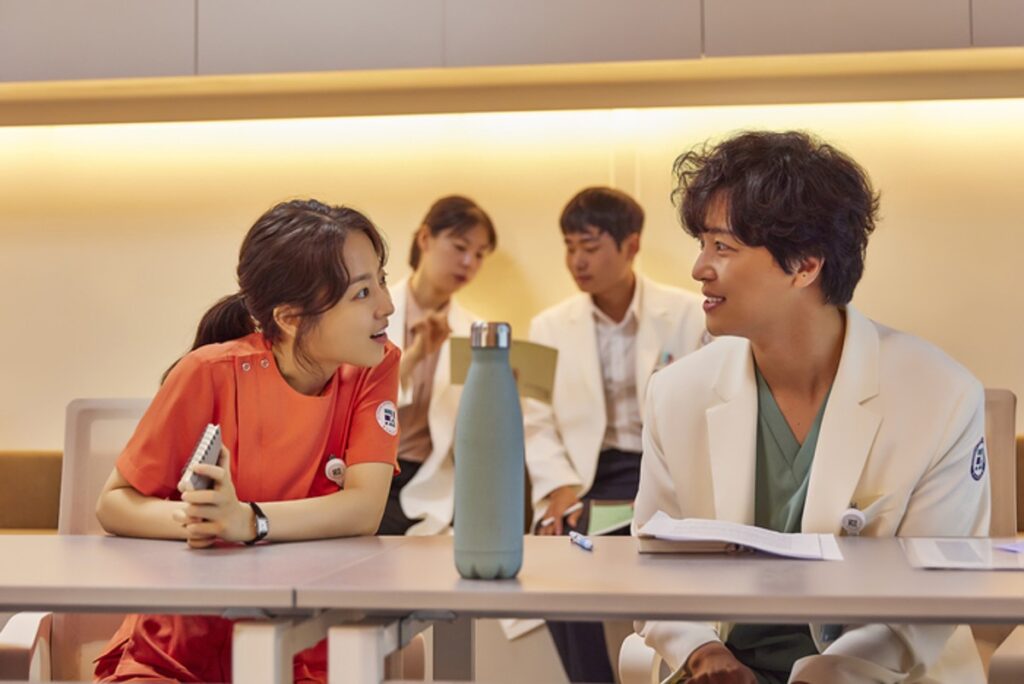
Things that instantly intrigue us are the visual effects and the use of sounds. The creators have tried to visually showcase what the person is feeling/going through, while suffering from a specific issue. Their mental state is reflected on the screens and gives us a glimpse into those dark corners. One prominent element we can see is how people suffering from panic disorder feel – as if they are getting submerged in water, gasping for air to survive.
Adding more impact to the visuals is sound, even the distinction between the nurse station surrounded by a transparent wall and the chaos outside of it can be realised through that. Inside the station is like a brief moment of tranquillity, where the surround sound is so faint that it doesn’t affect you. And as you step out of it, you are hit with a cacophony, rushing you to act before you can realise what ensued. Each episode introduces different patients and the issues they are dealing with.
Looking at their stories, one could feel like it’s a commentary on the current state of society that makes one often feel lacking. The pressure of work, difficult colleagues or toxic work culture, overworking, feeling unaccomplished, lack of free-will, being wronged or a traumatic event are some of the issues that are shown as the triggers or stem of their problems. Initially, Da-eun is shown to be doing her best to help everyone, in any capacity she can. However, in the second half, her piling emotions and bottled feelings take her to the other side. Instead of giving care, she is held under observation and shows an intimate image of what it exactly feels like.
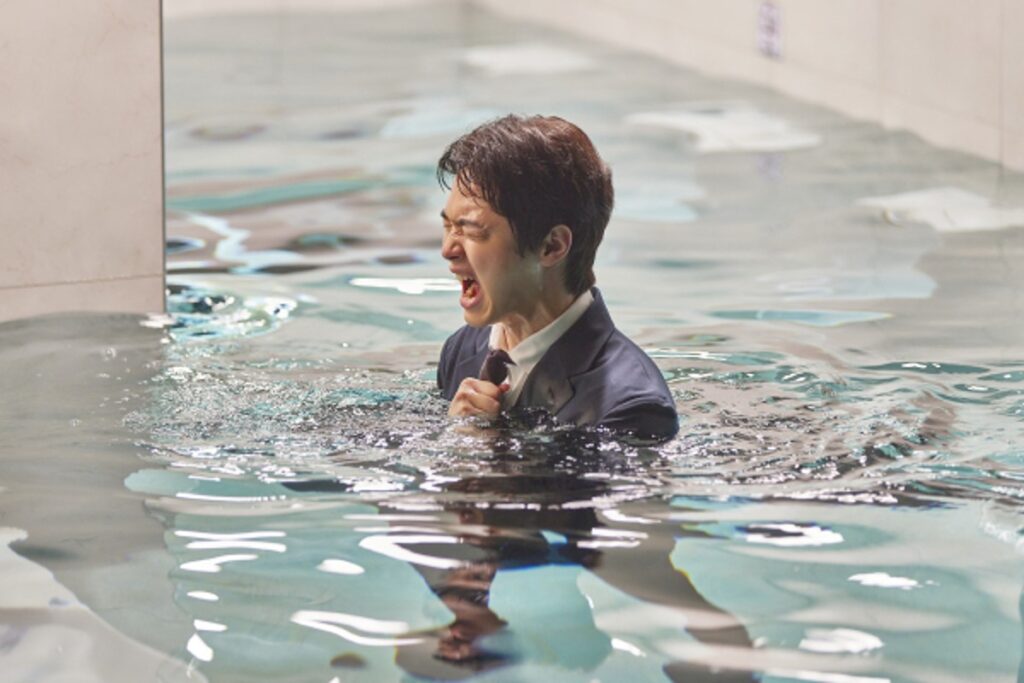
There’s no argument about how the show does a brilliant job of bringing out stories that are often termed ‘taboo’. It is a great step in creating discourse and increasing awareness about mental health. As a dialogue in the show says, ‘there’s a very fine line between normal and abnormal’ and anyone can pass through the two, anytime. What put me off is how dramatic some of the things were made. Despite knowing that it’s a fictional dramatisation, it could be misleading in many ways.
For example, depression is not something like a fever that you can see the deprecating symptoms easily. Whereas, in the show, it takes a 180-degree turn and shows how instantly it turns extreme. But that’s not how it develops, there are months of silent suffering (if not years) before it becomes that extreme. One can commend that, unlike other medical dramas, they didn’t paint a happy picture of everyone getting better quickly. But there are instances which don’t portray the true reality, probably due to the entertainment factor.
The subtle romance or love triangle between Da-eun, Go-yun and Yu-chan brings moments of respite among the intense and heavy moments. It’s not a romance drama per se, but how Da-eun & Go-yun’s relationship progresses is heartwarming to watch. They are an example of how love doesn’t shoo away your problems, but it’s a consistent effort to stay with someone, through all the ups & downs. Also, the way the second love interest wasn’t shown in a pitiful light was new to watch.
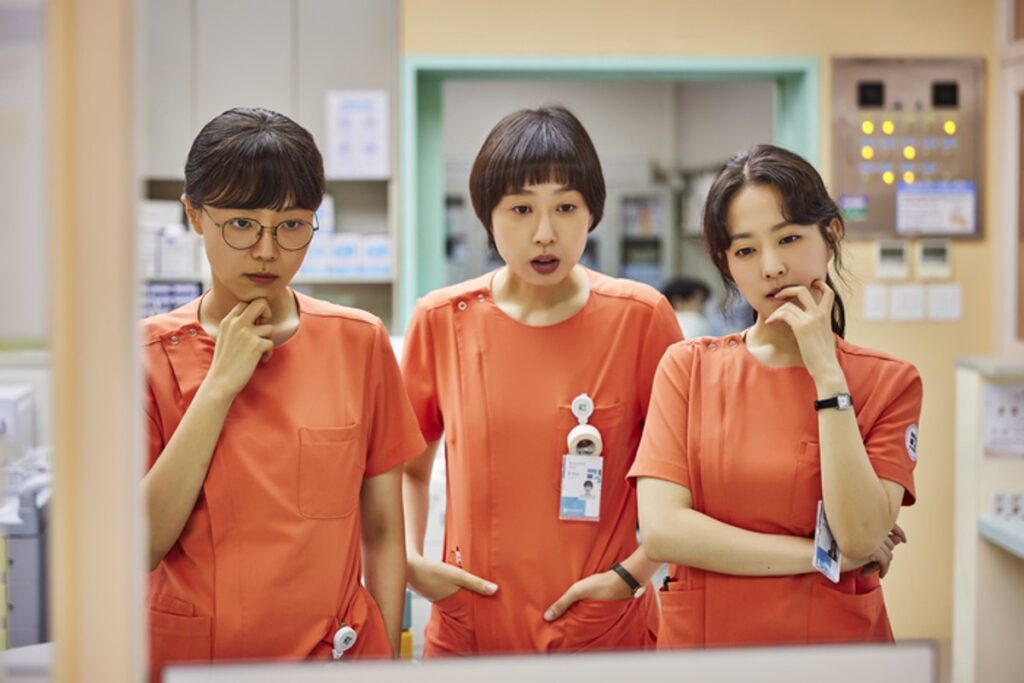
Overall, Daily Dose of Sunshine is definitely a show that would be on the list of must-watches. But one should expect some heavy emotions and difficult topics amongst fun and games. No matter how realistic it might feel, it’s still a fictional dramatic show, so, watch it with a grain of salt. Also, looking at the cast, one would already know that the performance will be top-notch.
Rating: 3.5/5
Daily Dose of Sunshine is available for streaming on Netflix.
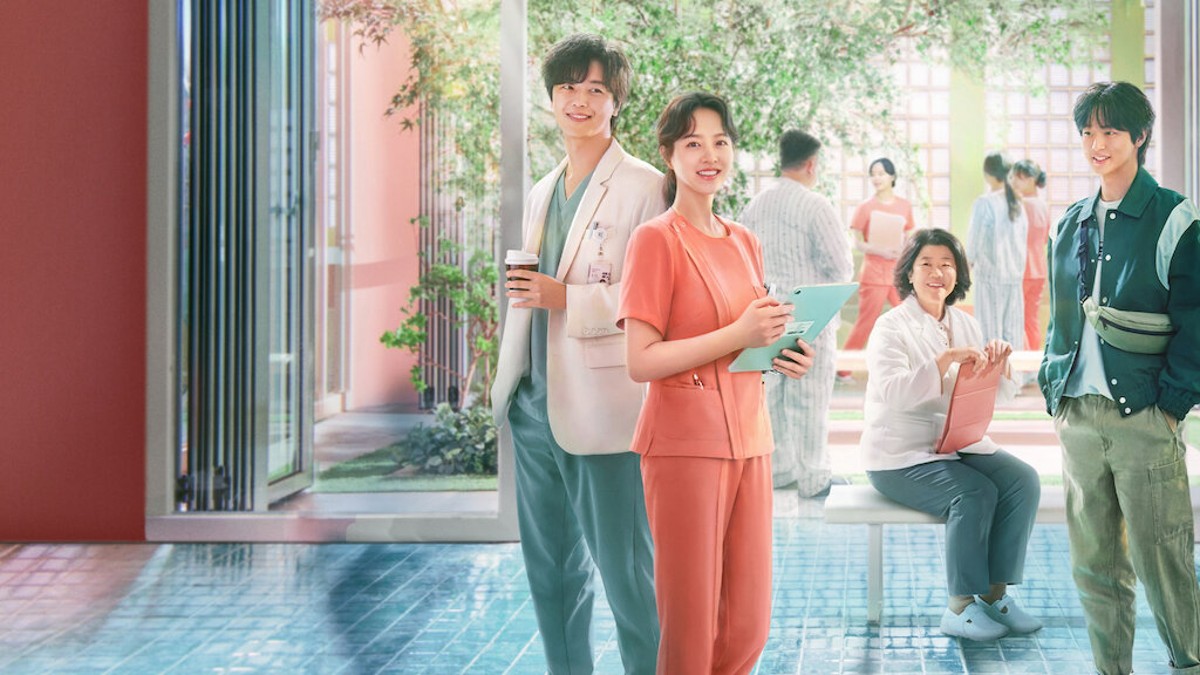
Leave a Reply